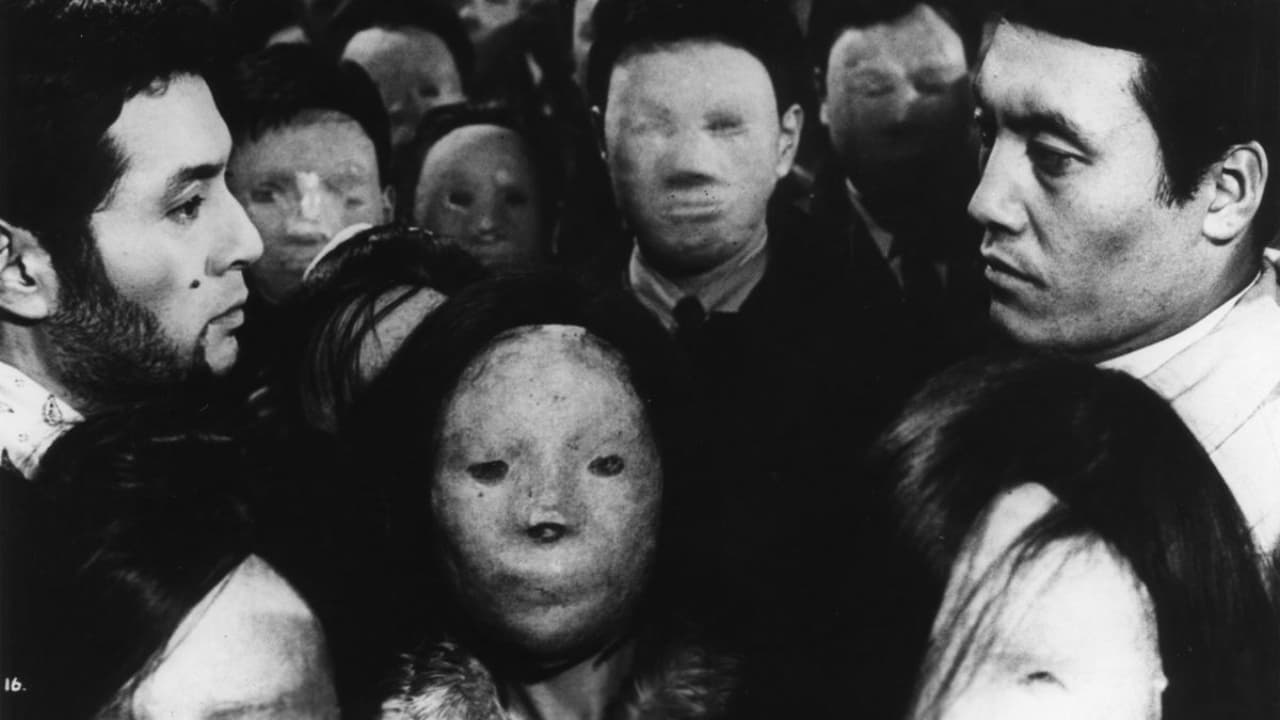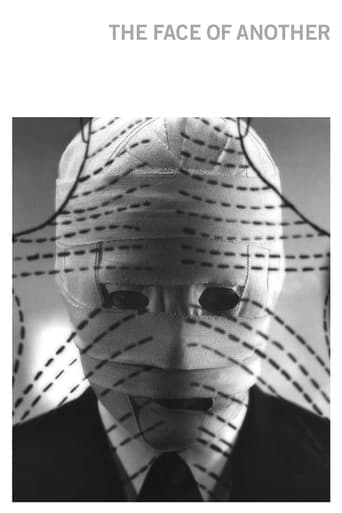

I have a physiology exam tomorrow, but since I realized I'm able to write reviews and this is one of my favorite movies, I feel like ranting for a bit on this particular film. You see, I go out on a limb searching several 'Greatest Films' lists, reading film reviews, obsessing over films, etc and it all boils down to one thing: watching a good film. This... is a good film. You watch it knowing you're not wasting your time because you're having fun because the director is doing lots of fun things, for eg. two people are having a conversation and all of a sudden the camera rotates 90 degrees, or some kid getting an injection and out of no where comes this lady washing a plate on her bed while flying through town, but the best part I think is it's such a good psychological drama, probably the best in its genre (just kidding, I'm only trying to sound professional), but it does dig deep into your psych. Also, very beautifully photographed, this director is something else. OK, maybe I should study now. I hoped you enjoyed this review. Thank you for reading.
... View MoreThis is amazing cinema all the way through, in story, in sound editing, in cinematography, in acting, in lighting, and editing. The story is all about a lonesome disfigured man, and feels like it could have been written by Tennessee Williams or Ernest Hemingway. The direction was trippy and haunting in the way that Roger Corman movies are. It's like a precursor to "Abre los ojos"/"Vanilla Sky", but with a pace all its own, a more thoughtful, careful pace, that builds subtly. But just like those movies, this one also has no clear resolution. After all that arduous torture, we are left without any shining piece of truth, without any humor, but beyond that, we are not left even with any lasting issues to discuss or contemplate. We are only left with a sick, hopelessness. That's why I say, it's technically and dramatically alluring, but without payoff. I'm glad I watched it once though.Goes well with "Memento".
... View MoreA brutal commentary on self-image and the way that appearances can change the attitude and ideals of a person that is one of the best films I've ever seen. The way that Okuyama changes throughout the film is incredible. He starts off as a brutally wounded man, who is afraid to go out in public due to his horrible disfigurement. He realizes how important looks are and all he wants is a new face so that he can blend back into society and be with his wife again. There's no desire to be attractive or important, he just wants to be normal. But once he gets his new face, his attractive appearance turns him into a completely different man. He buys flashy clothes and walks around with an attitude of superiority and importance in a world where he is really just a stranger. The film does a remarkable job of showing just how important appearance truly is, even if you think you can look beyond it. This is shown through Okuyama's wife, who pretends like she loves him even though he is horribly disfigured, but she ends up refusing his sexual advances due to it. Teshigahara uses bleak tones and minimalist sets as a way to show the isolation that society creates do to it's one-dimensional view of forming opinions on people merely due to appearance. These settings also do a great job of focusing the viewer on the characters instead of flashy visuals and elaborate sets.I thought that the Psychiatrist was also a very complex character as he becomes more and more interested in his experiment with Okuyama's new face and less interested in Okuyama himself. He becomes greedy and selfish in his desire to mass produce the masks, but Okuyama's greed compels him to reject the Psychiatrist's wishes and look out merely for himself. This greed makes him a very dangerous man who is hanging on the edge of a breakdown through most of the film, until an encounter with his wife finally sets him off. It's the Psychiatrist's greed, though, that ends up being the true horror of the film. Okuyama realizes the dangerous monster that this mask has turned him into, and does the only thing he can think of to stop him from harming the world. It's the Psychiatrist's greed, though, that unleashes the beast of Okuyama into the world which leads to the abrupt and shattering finale. The paradox of a physical monster versus a psychological monster is absolutely sensational. In the beginning he is deformed on the outside, but as he becomes normal and beautiful on the outside, he ends up being a terrible monster internally. There is only one thing that I can really complain about, and that is the entire story of the "Facially scarred young woman". All of her scenes felt really out of place and added nothing to the fantastic commentary and intelligence of the plot. Everything with her was just unnecessary, but this was just a mere chink in the grand masterpiece that the film embodies as a whole.
... View MoreThis is a nice movie about a whiny faceless complaining. There is another half faceless who has her face licked by her brother before walking into the ocean to die. the whiny faceless has a nice beard which he uses to try to trick a retard girl. his wife is not impressed. i give it 7. the doctor is a sicko and wants everyone to be faceless because he says there would be no crime that way. i don't get what he meant by that. i guess he's referring to the low crime rate in china. i don't know what i meant by that. anyway, it makes u think a lot. i suggest you get your hands on a copy of this gem. It's very cerebral in that way. Sometimes when i was watching this movie, i couldn't help thinking if i had the power to change my face, who i would try to seduce. i don't think it would be my wife like this guy did, mostly because i don't have a wife. if you are going for a faceless theme, this movie makes a good double feature with Eyes Without A Face. that's a french film. This movie should not be confused with the Mel Gibson classic Man Withoug A Face.
... View More